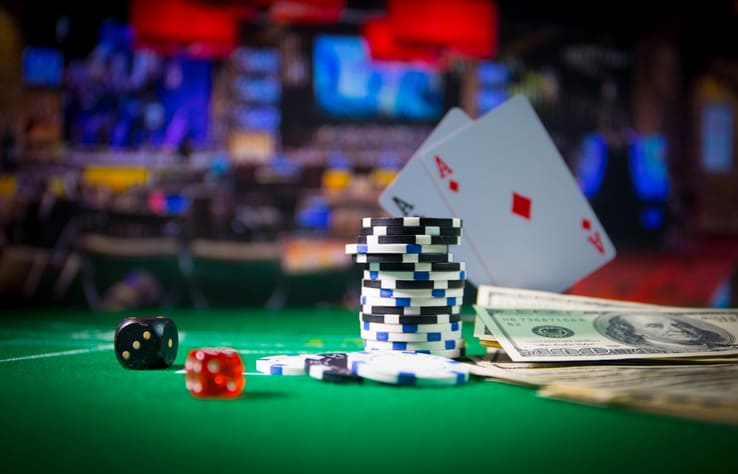The Thrill of Chance Unveiling the Psychology Behind Gambling
The Allure of Risk
The excitement surrounding gambling often stems from the unpredictability of outcomes. This sense of risk, coupled with the potential for reward, can create a uniquely thrilling experience. Many individuals are drawn to gambling not merely for the chance to win money but for the adrenaline rush that accompanies each bet. The anticipation builds as players engage in games of chance, with each roll of the dice or turn of the card posing the possibility of a transformative outcome. For instance, the growing interest in e-wallet pokies reflects this excitement.

Psychological studies suggest that this dynamic taps into the brain’s reward system. The brain releases dopamine—a neurotransmitter associated with pleasure—upon experiencing a win or even just the hope of winning. This creates a feedback loop that reinforces the behavior, encouraging players to gamble again in search of that heightened pleasure. Understanding this psychological aspect reveals why so many people find gambling to be an irresistible activity.
Social Factors in Gambling
Gambling is not just an individual endeavor; it is a social activity that fosters connections. Many individuals gamble in groups, highlighting the communal nature of the experience. The social interaction that occurs in casinos or online gaming platforms enhances the thrill, where players share in each other’s victories and defeats. This collective engagement can amplify emotions, making each win feel more significant and each loss more poignant.
Moreover, social factors, such as peer influence and societal norms, play a crucial role in an individual’s likelihood to engage in gambling. Friends and family can impact one’s perception of gambling, either positively, by sharing the joy of playing, or negatively, by highlighting the risks associated with it. Understanding these social influences can help individuals reflect on their motivations and the potential risks involved in gambling activities.
Cognitive Biases and Misconceptions
The psychology of gambling is further complicated by cognitive biases that often cloud judgment. Many gamblers fall prey to the illusion of control—believing that they can influence random outcomes through skill or strategies. This sense of control can lead to a persistent belief that luck will eventually turn in their favor, prompting them to continue playing even in the face of significant losses.
Similarly, the gambler’s fallacy, which is the belief that past events influence future outcomes, can lead to irrational decision-making. For example, if a player experiences several consecutive losses, they might believe that a win is “due” and continue betting. Awareness of these cognitive biases can serve as a crucial step in understanding one’s approach to gambling and help manage its risks effectively.
Gambling and the Digital Age
The advent of technology has transformed gambling into a virtually omnipresent activity. Online platforms have made it easier for individuals to gamble at their convenience, breaking down geographical barriers. This accessibility can amplify existing psychological triggers, enabling continuous engagement without the typical physical cues often associated with traditional casinos.
Furthermore, digital gambling environments are designed to enhance the sensory experience. Flashy graphics, engaging soundscapes, and instant feedback on wins and losses stimulate the senses, heightening the thrill. As the line between entertainment and gambling blurs, understanding the psychological underpinnings of these digital platforms becomes essential for players to navigate their experiences responsibly.
Understanding Responsible Gambling
Amid the excitement of gambling, it’s essential for individuals to cultivate a balanced approach towards their gaming habits. Responsible gambling emphasizes awareness and moderation, encouraging players to engage in the activity safely and sustainably. Recognizing one’s limits, setting budget constraints, and understanding the odds are vital components of a healthy gambling experience.

Resources and strategies are available for those looking to maintain healthy gambling habits. Various organizations provide education on the psychological aspects of gambling and offer support for individuals who might struggle with compulsive behavior. By promoting awareness and understanding, players can enjoy gambling as a form of entertainment rather than a problematic pursuit, ensuring that the thrill remains a positive aspect of their lives.






